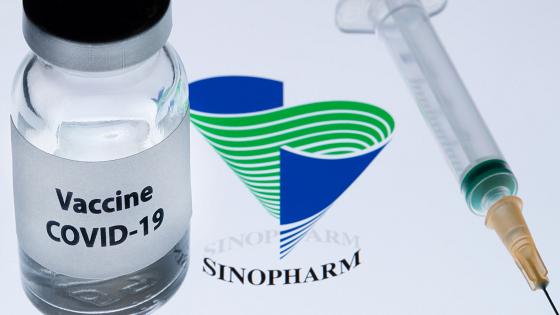The World Health Organisation (WHO) has listed the Sinopharm COVID-19 vaccine for emergency use, giving the green light for the vaccine to be rolled out globally. The Sinopharm vaccine is produced by Beijing Bio-Institute of Biological Products Co Ltd, subsidiary of China National Biotec Group (CNBG).

“The addition of this vaccine has the potential to rapidly accelerate COVID-19 vaccine access for countries seeking to protect health workers and populations at risk,” said Dr Mariângela Simão, WHO Assistant-Director General for Access to Health Products on Friday, May 7, 2021. “We urge the manufacturer to participate in the COVAX Facility and contribute to the goal of more equitable vaccine distribution.”
WHO’s Emergency Use Listing (EUL) is a prerequisite for COVAX Facility vaccine supply. It also allows countries to expedite their own regulatory approval to import and administer COVID-19 vaccines.
The EUL assesses the quality, safety and efficacy of COVID-19 vaccines, as well as risk management plans and programmatic suitability, such as cold chain requirements. The assessment is performed by the product evaluation group, composed by regulatory experts from around the world and a Technical Advisory Group (TAG), in charge of performing the risk-benefit assessment for an independent recommendation on whether a vaccine can be listed for emergency use and, if so, under which conditions.
In the case of the Sinopharm vaccine, the WHO assessment included on-site inspections of the production facility.
The Sinopharm product is an inactivated vaccine called SARS-CoV-2 Vaccine (Vero Cell). Its easy storage requirements, according to the WHO, make it highly suitable for low-resource settings. It is the also first vaccine that will carry a vaccine vial monitor, a small sticker on the vaccine vials that change colour as the vaccine is exposed to heat, letting health workers know whether the vaccine can be safely used.
WHO’s Strategic Advisory Group of Experts on Immunisation (SAGE) has also completed its review of the vaccine. On the basis of all available evidence, WHO recommends the vaccine for adults 18 years and older, in a two-dose schedule with a spacing of three to four weeks. Vaccine efficacy for symptomatic and hospitalised disease was estimated to be 79%, all age groups combined.
Few older adults (over 60 years) were enrolled in clinical trials, so efficacy could not be estimated in this age group. Nevertheless, WHO is not recommending an upper age limit for the vaccine because preliminary data and supportive immunogenicity data suggest the vaccine is likely to have a protective effect in older persons.
There is no theoretical reason to believe that the vaccine has a different safety profile in older and younger populations. WHO therefore recommends that countries using the vaccine in older age groups conduct safety and effectiveness monitoring to make the recommendation more robust.
